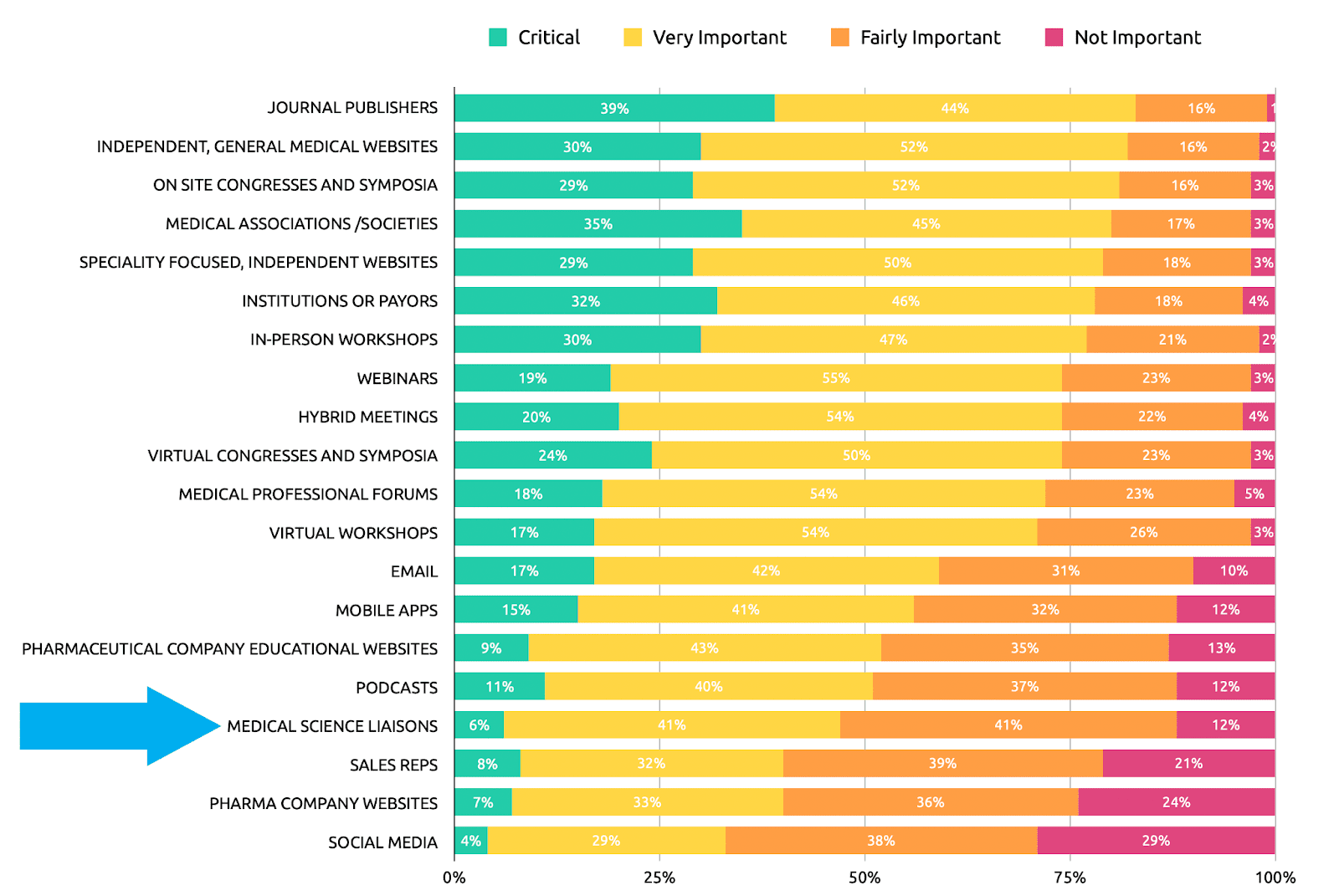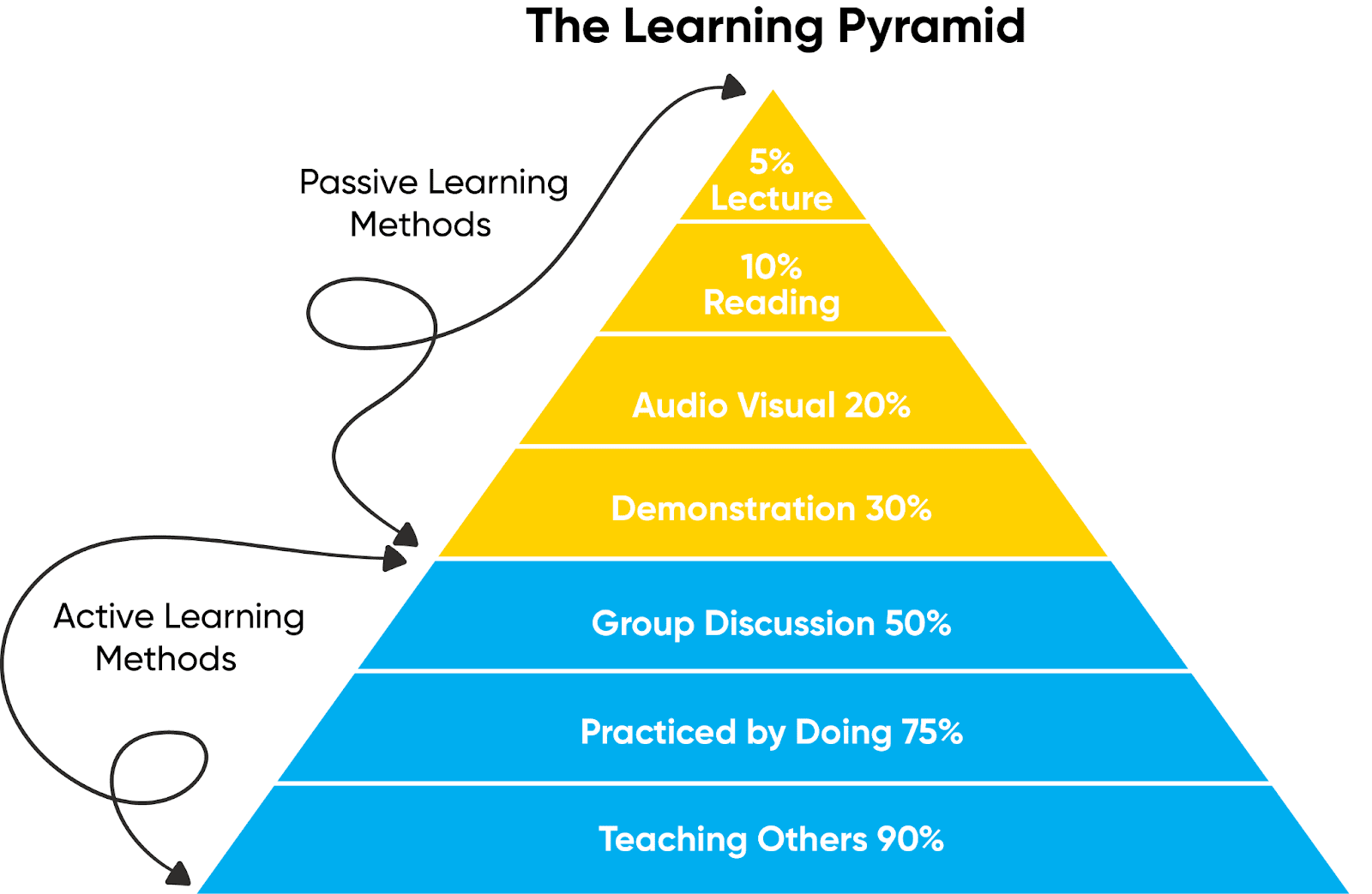How Storytelling Facilitates Impactful Conversations Between MSLs and HCPs
When healthcare professionals rank the importance of various scientific information sources, medical science liaisons receive surprisingly low ratings.
It’s not that medical science liaisons are ineffective. In fact, face-to-face dialogue is one of the most effective ways for HCPs to gain knowledge.
Unfortunately, MSLs are often underrated because the tools at their disposal aren’t unique and innovative enough. It’s not necessarily about using brand-new technology or flashy graphics — though neither of those elements hurt.
It’s about building a genuine educational connection. And there is a deceptively simple tactic to facilitate that connection: storytelling.
Storytelling Is a Key Educational Tool for MSLs
In the Medical Communications industry, assumptions shape the status quo — that publications dealing with pharmaceuticals and therapies should be as complex as the information they contain.
However, these assumptions aren’t based on learning principles. It’s easier and more comfortable to do things as they’ve always been done. Unfortunately, when MSLs operate that way, HCPs don’t find the conversations engaging or the outcomes impactful. HCPs are already inundated with information. Whether it’s through a screen, a textbook or an in-person conversation, HCPs have more hours of content to read and retain than there are in a day.

While MSLs undergo training to provide straightforward, customized, educational content to HCPs, they encounter pain points, too. It’s the curse of knowledge at play here. Professionals and experts, despite their deep knowledge, often have a hard time explaining their expertise.
Consider this example: A skier and a ski instructor both understand the same skills required to ski. They are both adept at the biomechanics of skiing, using the equipment and finding the best route down a mountain.
However, the skier probably doesn’t have the skillset to teach someone how to ski. They are “cursed with knowledge.” They inherently know how to do it. The instructor, however, has formal training and knows how to break complex and sometimes frightening concepts into clear guidance. The skill of teaching is different from knowing.
Storytelling: A Solution to the MSL’s Curse of Knowledge
Storytelling is the solution that solves both pain points. For instance, an MSL might have deep, granular insights about a new therapy. But without storytelling tools and proper training, they may have a hard time breaking down their specific data points to make it digestible for an HCP audience.
Research from psychologist Jerome Bruner suggests that concepts connected through a story increase learner retention. Plus, storytelling makes the conversations with MSLs more interactive and engaging, which are also two essential ways of increasing knowledge retention.
Storytelling is a skill that MSLs can build, and then facilitate with tools like FaST decks. Combined skills and tools build confidence to engage more directly with HCPs rather than reading slides, as is often seen with traditional tools and methods.
Storytelling isn’t about making up anecdotes. It’s about supporting HCPs’ educational journey with contextual information and tools, like FaST decks, that provide pathways to link information. This results in a more enjoyable and, ultimately, impactful experience.
3 Ways Storytelling Breaks Through the Status Quo
Storytelling is a tool that supports MSLs. The dialogue is the priority — but tools that foster storytelling make for an engaging, interactive experience. Here are three ways that storytelling supports informational exchanges between MSLs and HCPs.
Personalization
Being a skilled storyteller helps MSLs personalize their “stories” for the HCPs they are working with. The same MSLs may have an assignment to present information on a new immunotherapy drug to an oncologist one day, and a primary care physician (PCP) the next.
Though the information is vital to both, the learning journey will differ. The oncologist is already familiar with similar drugs and is most interested in clinical trial results, efficacy data and combination therapies for different cancer stages.
On the other hand, the primary care physician doesn’t have the same experience with cancer cases. In this scenario, the MSL needs to provide a comprehensive explanation of the new drug.
Storytelling tools like FaST decks with non-linear navigation allow the MSL to customize the conversation to each doctor’s questions and expectations, leading to a more engaging HCP experience and more relevant information.
Active Learning
The learning pyramid highlights the importance of interactivity for effective MSL conversations. It’s like a lecture versus a group discussion. In a large seminar, it’s easy for your audience to nod along while their mind is elsewhere. Covering the same topic in a hands-on group discussion is much more effective. Learners retain very little of the knowledge they hear versus almost all the knowledge that they experience.

MedComms Experts recommends that MSLs employ a variety of learning methods, focusing on active learning methods, to provide the best outcomes.
Storytelling provides the same active learning environment as the hands-on discussion. It’s much easier to remember a good story than retain a bulleted list of data.
Empowering MSLs
Storytelling tools don’t facilitate better discussions — the MSLs empowered to use them do. Just like training builds confidence through knowledge and skill, storytelling empowers MSLs to customize their conversations by offering a framework.
Scientific skill is part of the equation, but conversational skill is another. Luckily, MSLs can learn conversational skills. Tools like our FaST decks and other educational techniques support storytelling efforts.
To go back to the skiing metaphor — MSLs are already good skiers. The storytelling tools and training equip them to be good ski instructors.
Scientific Stories Increase HCP Engagement and Achieve Better Outcomes
Sending MSLs out into the field without storytelling decks is a disservice, to them and to HCPs. Doing so is akin to broadcasting a message instead of hosting a dialogue. A crucial ingredient for success is the ability to engage HCPs.
And that can be done through engaging educational tactics like storytelling. When storytelling is used effectively and supported with unique, innovative and digitally-enabled tools, MSLs have more fruitful discussions. No matter what type of learner an HCP is, storytelling helps them digest and retain information — visual learners connect to their mental vision of the story, auditory learners connect with the information they hear and kinesthetic learners connect to the emotions or feelings from a story.
In short: storytelling sticks. To achieve better educational outcomes for HCPs, equip your MSLs to tell them better stories. Get in touch to learn more about our facilitated storytelling tools and training techniques to empower your MSLs.
